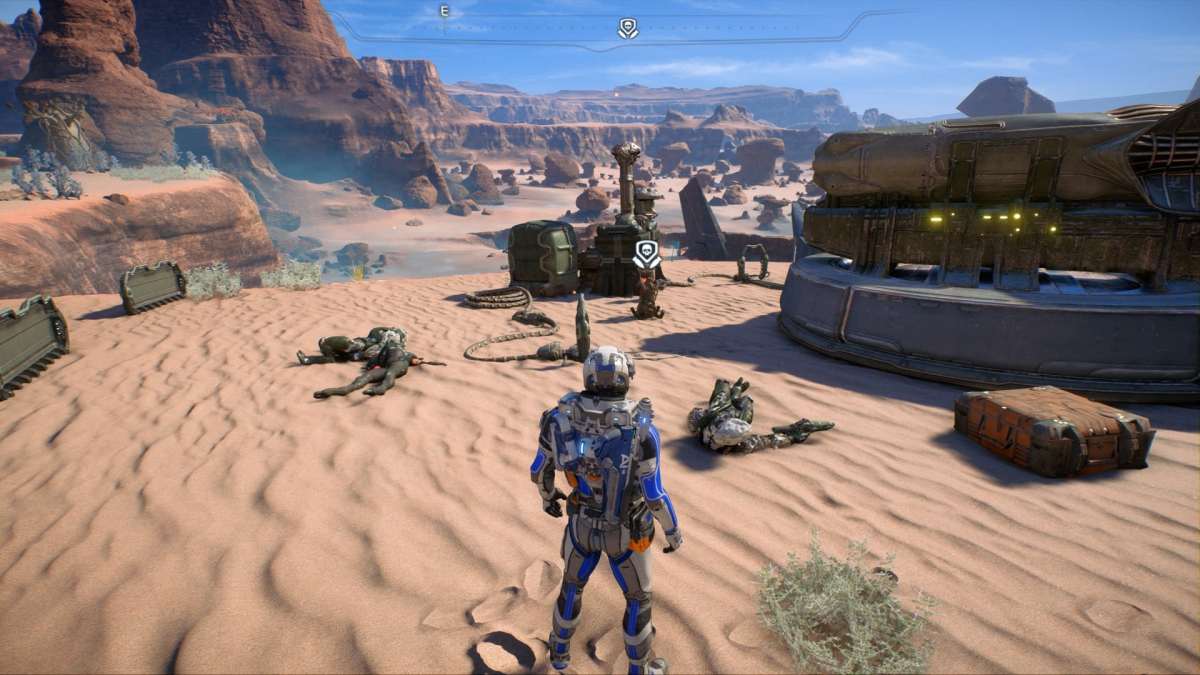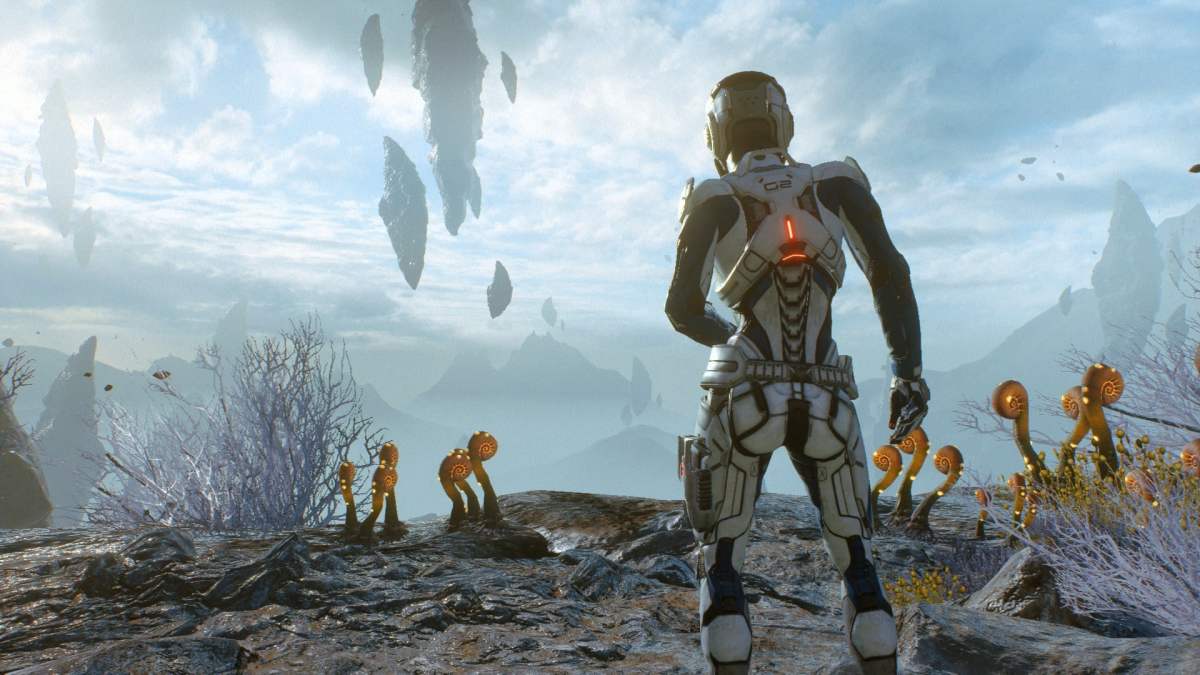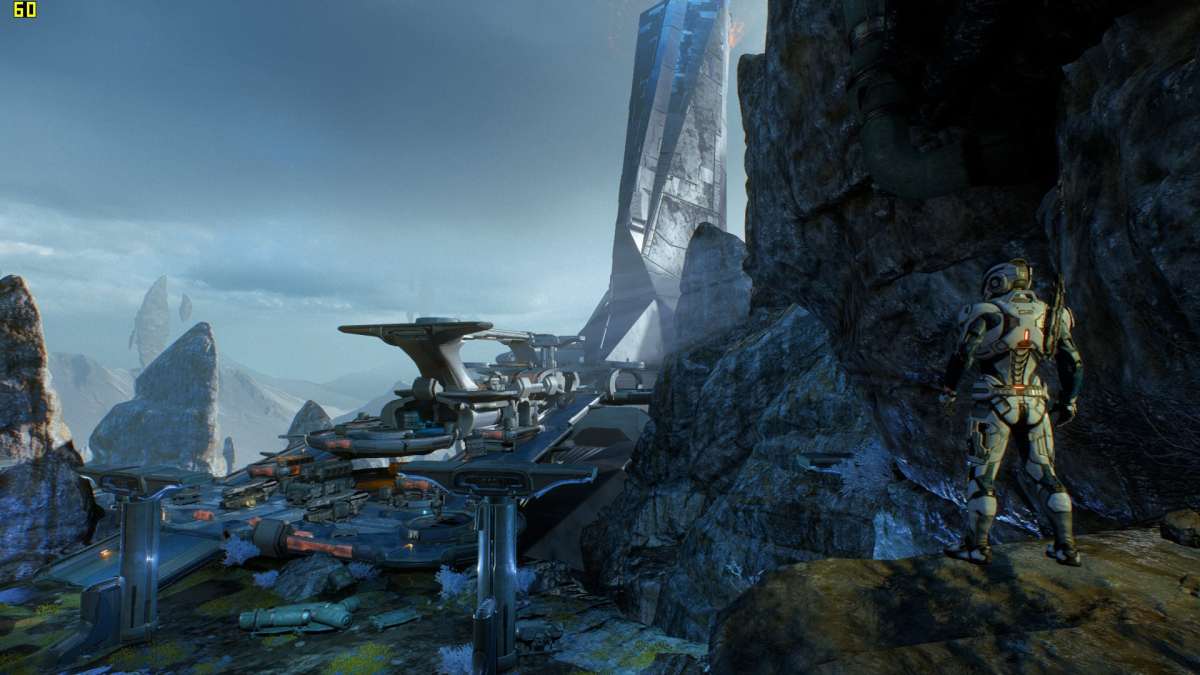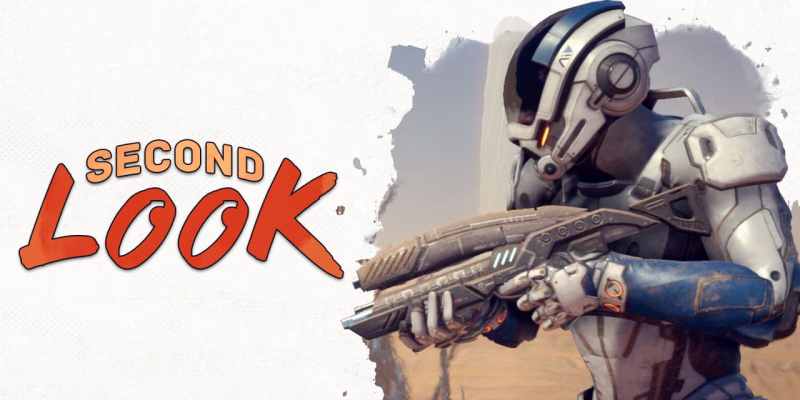Last week, we dug deep into the heart of Mass Effect: Andromeda and why some of its maligned aspects were actually crucial to its core goals. However, there are specific ways to improve upon the Andromeda formula in the case of a direct sequel or a soft-reboot successor harnessing Andromeda’s blend of gameplay.
Three crucial points must be addressed: making exploration more meaningful, streamlining features, and addressing BioWare’s perennial problem of protracted opening sequences.
Let’s tackle that last issue first. Instead of swiftly integrating players into the action or opting for a careful slow-burn experience, each of these games opens with a big, explosive event, then immediately pumps the brakes the moment things get interesting. For instance, Andromeda throws you into Habitat 7, a gorgeous world full of mysteries, only to yank you onto Eos, a boring desert planet that mostly just trains you for the rest of the game.
If Eos only took an hour or so, that’d be fine. However, not only does it take several hours, but its environment is trivialized opposite the acidic Kadara and windswept wasteland of Elidaan, each with more interesting subplots. However, this issue isn’t unique to Andromeda.
Was the abandoned colony in Mass Effect 2 memorable at all besides Tali’s cameo? How about being told to unite the humans, elves, and dwarves in Dragon Age: Origins? Did we really need to spend hours upon hours stuck on Taris in Knights of the Old Republic? RPGs can absolutely be some of the most complex experiences on the market, so you want to ease players in, but it’s no coincidence that there are so many fan mods for each of these games that skip the dull moments so that players can get on with the meat of the experience.

Ironically, the best example of BioWare cutting to the chase is Mass Effect 3, keeping the plot rolling with just the relevant information until you’re finally back in action. It still takes over an hour to get back on your ship, leading the charge against the invading Reaper horde, but it never feels like you’re wasting time.
While Mass Effect: Andromeda has the extra layer of its many exploration elements, these could’ve been integrated into set pieces on Habitat 7: racing away from an electrical storm in a Nomad tank, only for it to crash and leave your team scrambling. Scanning the environment to solve a puzzle rather than just to confirm that the world is full of foreign lifeforms. Finding a repair station to craft a functional pistol after the one you landed on broke your fall during a mishap. Save for spending credits at stores, everything else could’ve been available to you. There were many missed opportunities.
Meanwhile, the exploration in Andromeda, while arguably better than Mass Effect’s uncharted worlds, is still often a bore. Unique traversal challenges like low-gravity environments, sink holes, and ice are sparsely utilized, making driving the Nomad mostly a game of recognizing when to switch to six-wheel drive or four-wheel drive. Platforming may have been out of place in Dragon Age: Inquisition, but it honestly makes sense in a game where you have a jetpack and a tank that can practically fly in the air if you time your boost right.

The rewards you find for your trouble further undercut the urge to explore. Several side objectives are either checklist tasks or are blatant copy-pasted outposts with a modicum of loot you’ve likely already made obsolete. Improving this experience could be as simple as recovering rare parts to assemble a unique legendary weapon or perhaps uncovering little stories through audio logs or text. It might not be The Witcher 3 levels of every quest being treated like a major event, but that’s normal, and frankly fine given you’re exploring mostly uninhabited worlds. The point is to make it feel meaningful to players, regardless of other factors.
However that also leads us to a problem more inherently unique to Mass Effect: Andromeda — how it slaps on a number of systems, progression tiers, currency, and more that all tangle up into a mess of to-do lists. You don’t just level up and acquire loot — you’ve got loyalty missions, AVP to earn, APEX squads to manage, credits to earn, crafting resources to find, customization equipment to loot (or buy at a handful of vendors), and research points to acquire by scanning everything. Oh, and you can’t even access some of the best parts of any of these until reaching certain thresholds in others.
This sort of contrivance is acceptable with tabletop RPGs because they’re based inherently around imagination with a rule set. Andromeda is a AAA video game where no other element leans so heavily into CRPG trappings. It’s not that individual elements don’t work though. The crafting system verges on Atelier levels of flexibility, scanning updates the Star Trek tricorder concept beautifully, the way you spend your AVP points makes for tangible bonuses that suit your play style, and the loyalty missions are some of the best scenarios out of the entire game.

Personally, I’d make the AVP point system, which centers around increasing habitability in Mass Effect: Andromeda, the only measure of leveling everything as far as gear, bonuses such as free resources and credits at regular intervals, and what tier of equipment you have access to. The greater good you do, the better your assets become. This would make every positive action you take across the galaxy immediately beneficial. Whether you’re negotiating a peace treaty or handling busywork for some scientist back at headquarters, you’re making progress.
Obviously your skills would still be earned through traditional experience points, but why not grant comparable experience points for surveying an area as you would for combat? This gameplay loop is already coded in with the Remnant Vault unlock sites, but rather than solving a contrived sudoku puzzle, it would just work like a collect-a-thon platformer. Along the way, have Sam and maybe Ryder comment on the various life forms or ruins you’re taking a look at. Not only would it break up pacing, but emphasize further that you’re an explorer.
The APEX management minigame, meanwhile, either needs to be cut or made more worthwhile. While yes, you can take on some missions in online multiplayer, there’s no reason you couldn’t just take on these missions solo with your AI squadmates. It worked for Mass Effect 3, and it’d be a vast improvement over having to stop every time you’re on the Nexus to tell a stack of numbers to mash against some more numbers to see who wins. That just isn’t interesting, especially with the minimal payout for bothering with it.
The comments section may claim that what Mass Effect: Andromeda really needed was “better story” or “more choices,” but it has a solid story with great moments bolstered by strong choices. You can help lead a violent coup against a planet’s ruler, enrage or befriend an entire colony of one of the most powerful races in the history of the franchise, betray or stand by several allies, and experience multiple forms of romance — all in a single playthrough. It’s not that Andromeda lacks these elements, but that they get lost in the miasma of cumbersome subsystems and an introduction sorely lacking in the quality content players get to experience just a few hours later.
If we do get to ride the Tempest again, stepping into the shoes of Ryder or another explorer of the Andromeda galaxy, I sincerely hope that BioWare doesn’t obsess over what the loudest voices are shouting. With the right reworking, I can see a sequel on the level of Days Gone, perfectly melding these disparate elements into a strong, tightly wound experience running on all cylinders. The question is whether BioWare and EA are willing to take that risk.
